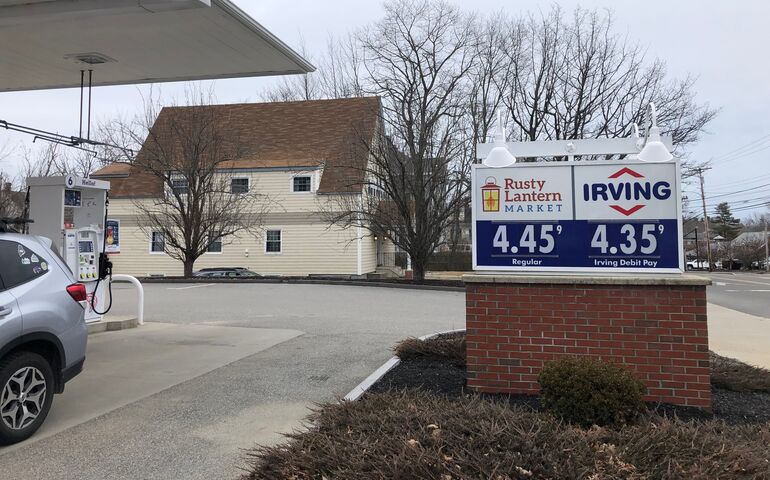Even as gas prices soar, predictions of a strong tourism season haven’t waned
 photo / PETER VAN ALLEN
Maine's average gas price is $4.299 a gallon, under the national average of $4.33, according to AAA.
photo / PETER VAN ALLEN
Maine's average gas price is $4.299 a gallon, under the national average of $4.33, according to AAA.
With gas prices quickly marching toward $5 a gallon, there is continued optimism for a strong tourism season in Maine.
For now at least, hospitality officials are not deterred by the higher gas prices.
“I think gas prices could have a small effect. I would still bet on overall tourism numbers meeting or beating 2021. I think overall, people are anxious to get out and Maine seems to be a safe and comfortable place to do that. Also, if people are choosing to come to Maine, for the most part, hotels and restaurants can be expensive. I think the vast majority of people would still come, even with higher gas prices,” said Matthew Lewis, president and CEO of HospitalityMaine, whose members are hotels, restaurants and other attractions.
“It is something we will keep an eye on,” he added. “In conversations with hotels about summer reservations, they are above pace and looking very busy.”
The average gas price in Maine is $4.299 and $4.33 nationally, according to the American Automobile Association.
A $4 price is considered a tipping point, AAA says, but at least one state, California, has already blown past that, with an average price of $5.72 a gallon.
In New England, New Hampshire and Maine have the lowest prices, within a penny of one another, while Connecticut is highest among the six states at $4.486 a gallon.
Earlier this year, Tony Cameron, CEO of the Maine Tourism Association, cited research saying 81.5% of Americans were in a “ready-to-travel state of mind.” At the Mainebiz “Five on the Future” panel in February he said Maine remains “well positioned as a rural, outdoor recreational destination.”
Alison P. Sucy, director of government affairs and communications for the Maine Tourism Association, told Mainebiz in an email that while gas prices will likely be a challenge, the association doesn't expect people to change their plans at this point.
"The high gas prices are certainly a concern as Maine is primarily a drive market for visitors. However, so many people already have made summer plans and are excited to travel after the past two years that it is unlikely that those who have booked early will cancel their plans due to high gas prices. We know that many cottages, cabins and other smaller rental units are booked for the summer already," Sucy said.
There are concerns that visitors may spend less while they're here.
"Retail and restaurants might see less business even if lodging stays strong. Restaurants are one of the tourism sectors that has struggled the most. They operate on thin margins and have tremendous staffing challenges so anything that further impedes their recovery and growth is of concern," Sucy said.
She also cited the similar issues during the Great Recession, when gas prices also crossed the $4 threshold.
"People now are coming out of pandemic stay-at-home orders and are very eager to travel. Plus, Maine is known as an affordable destination and is well-known for its free or low cost outdoor recreational activities like hiking, kayaking, biking, and fishing. And the beautiful scenery and welcoming people of Maine are always free," she said.
Nationwide, with war in the Ukraine intensifying, the Biden administration cutting off Russian oil, and gas prices showing no signs of hitting a plateau, predictions are becoming less certain.
A Longwoods International study of American travelers released this week indicated that gas prices have overtaken COVID as a travel worry. Some six in 10 travelers indicated rising gas prices will impact their travel plans during the next six months.
“The travel recovery we all have hoped for this year faces a new challenge — the quickly rising cost of both gasoline and jet fuel,” said Amir Eylon, president and CEO of Columbus, Ohio-based Longwoods International, a travel research firm.
“After two long years of pandemic isolation and restrictions, the last thing consumers need is this oil-price shock. This increased expense might not only limit the number of trips travelers take, but also lead to selecting destinations closer to home or reducing their spending on items like meals, accommodations, and souvenirs as they travel.”










0 Comments